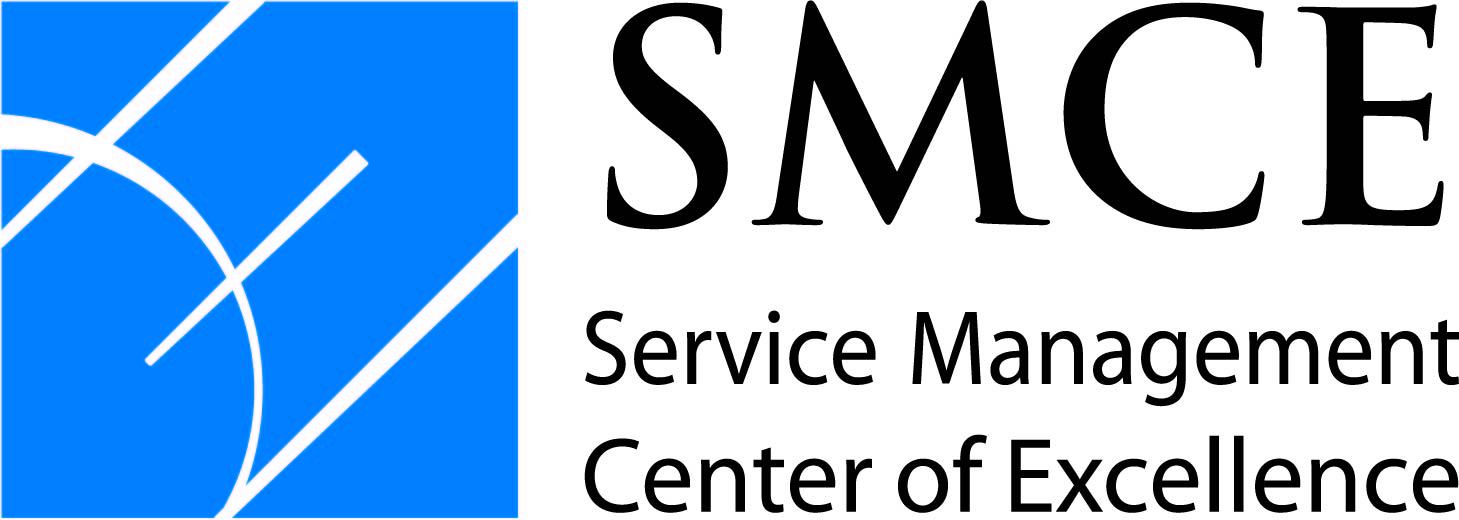In today’s hyper-connected world, technology has become more than just a tool—it is the driving force behind business transformation and competitive advantage. With digital innovation accelerating across industries, the role of IT Governance (ITG) and IT Service Management (ITSM) has never been more critical. These frameworks not only help organizations manage risk, compliance, and operational efficiency, but they are also fundamental to fostering continuous innovation. For C-level leaders in the GCC (Gulf Cooperation Council) region, embracing these frameworks is no longer a choice; it is a necessity to drive growth, improve customer experience, and maintain a competitive edge.
The GCC countries—Saudi Arabia, the UAE, Qatar, Bahrain, Kuwait, and Oman—are undergoing significant digital transformations, with governments and businesses alike prioritizing smart technologies, automation, and data-driven innovation. As nations move forward with Vision 2030 initiatives and other ambitious national strategies, technology adoption is paramount. However, the journey toward a digitally advanced future requires more than just implementing new systems or digital platforms; it requires a solid framework to govern these technologies and ensure seamless, efficient service delivery.
IT Governance ensures that all technology initiatives align with business goals, manage risk effectively, and enable scalable growth. It acts as a guiding force that connects IT investments to business outcomes, ensuring that innovation efforts are not only viable but sustainable in the long run. On the other hand, IT Service Management focuses on operational excellence—ensuring that IT services are delivered consistently, efficiently, and with the flexibility to adapt to changing business needs. Together, these two pillars form the bedrock upon which innovation can thrive.
The importance of IT Governance and ITSM in the GCC region is particularly evident given the rapid technological advancements in sectors such as energy, healthcare, banking, and government services. With massive investments in infrastructure, smart city projects, and cutting-edge digital services, GCC businesses are racing to innovate while ensuring that they manage the risks and complexities that come with such advancements. In this environment, governance frameworks and service management processes offer the stability and flexibility needed to navigate challenges while seizing new opportunities.
Innovation-Ready Governance: Setting the Stage for Future-Proof Strategies
In a world where technology is a primary driver of competitive advantage, IT Governance is the backbone of strategic alignment. It ensures that IT investments and projects support the overarching business objectives, allowing organizations to innovate in a structured and risk-aware manner. A robust IT governance framework not only improves decision-making but also ensures that technology adoption aligns with long-term corporate goals.
Real-World Innovation Catalysts in the GCC
- Saudi Arabia: Aramco’s Digital Pioneering
Approach: Aramco has embraced a high-performance IT governance framework based on COBIT and ISO/IEC 38500 to power its digital transformation in energy. By optimizing decision-making processes and ensuring that technology investments align with its innovation strategies, Aramco has been able to scale its use of AI, machine learning, and big data analytics in energy production.
Outcomes: These efforts have enabled predictive maintenance and enhanced energy efficiency, paving the way for a smarter, more sustainable energy infrastructure. Aramco is now an industry leader in leveraging digital technologies to maintain its competitive advantage. - UAE: DEWA’s Smart Grid Revolution
Approach: Dubai Electricity and Water Authority (DEWA) is a key player in the UAE’s smart city initiative, using a hybrid model of ITIL and COBIT to manage its IT governance. This has allowed DEWA to maintain a strategic focus on sustainable energy solutions and integrate cutting-edge innovations like renewable energy, smart grids, and AI-driven energy management systems.
Outcomes: DEWA’s strong governance framework has not only enhanced operational efficiencies but has also supported Dubai’s goal of becoming the world’s smartest and most sustainable city, providing a platform for future innovation in energy. - Qatar: Qatar Airways Leading the Digital Sky
Approach: Qatar Airways employs a comprehensive IT governance strategy grounded in frameworks like ISO/IEC 20000, ensuring that its technology investments support its goals of operational excellence, customer satisfaction, and digital service expansion. By focusing on IT governance, Qatar Airways has managed to integrate innovation in everything from mobile booking apps to AI-powered in-flight services.
Outcomes: This governance approach has enabled Qatar Airways to deploy technologies seamlessly and enhance its digital footprint, keeping it ahead in the competitive global aviation market.
Smart Service Management: Powering Innovation through Operational Excellence
While IT Governance sets the stage, IT Service Management (ITSM) is the engine that powers day-to-day operations. ITSM ensures that organizations can deliver IT services consistently and efficiently, all while supporting rapid innovation. By embedding frameworks like ITIL, organizations can fine-tune their service delivery and enhance customer satisfaction while scaling their innovative capabilities.
Game-Changing ITSM in the GCC
- Bahrain: Bapco’s Agile ITSM for Energy Innovation
Approach: Bahrain Petroleum Company (Bapco) has turned to ITSM practices to ensure operational efficiency in its critical IT systems. By implementing ITIL for continuous service improvement and incident management, Bapco has streamlined its IT processes to better support its energy operations and ongoing innovation in oil and gas technology.
Outcomes: Bapco has significantly reduced downtime and enhanced system reliability, allowing the company to innovate more freely. With ITSM in place, the company has seamlessly integrated AI and advanced analytics into its operations, enabling smarter energy management and more sustainable practices. - Kuwait: NBK’s Digital Banking Transformation
Approach: The National Bank of Kuwait (NBK) has harnessed the power of ITSM to manage and streamline its banking services. By adopting ITIL practices, NBK has built a resilient IT infrastructure that supports innovation across its digital banking platforms, including mobile banking, blockchain integrations, and AI-driven financial products.
Outcomes: NBK’s approach has enhanced operational stability, improved customer service, and accelerated the rollout of new services like real-time transactions, digital wallets, and personalized banking experiences, reinforcing its position as a digital leader in the banking sector. - Oman: Orpic’s ITSM for Innovation at Scale
Approach: Oman Oil Refineries and Petroleum Industries Company (Orpic) has adopted ITSM to ensure the scalability and efficiency of its IT services. With a focus on Incident Management and Change Management, Orpic ensures that disruptions are minimized, even as it introduces new technologies and innovations to the petroleum industry.
Outcomes: By using ITSM to stabilize its service delivery, Orpic has improved the integration of IoT sensors and AI for predictive maintenance in its production lines, reducing operational costs and enhancing innovation across its energy systems.
Unifying Governance & Service Management: The Ultimate Innovation Accelerator
When IT Governance and ITSM frameworks come together, they create a powerful ecosystem for innovation. While governance ensures that technology investments align with business goals and are managed with foresight and compliance, ITSM ensures the day-to-day delivery of services that support operational excellence. Together, they enable organizations to be both agile and stable, continuously pushing the boundaries of what’s possible with technology.
Why This Synergy is Essential for Innovation
- Enhanced Agility: The combination of governance and service management frameworks allows businesses to be more agile, rapidly responding to market demands and technological advancements while maintaining a solid foundation of risk management and compliance.
- Risk Mitigation: By leveraging governance to manage IT investments and ITSM to ensure operational reliability, organizations can innovate confidently, minimizing the risks associated with technological disruptions.
- Optimized Innovation: These frameworks ensure that innovation isn’t just about adopting new technologies but about adopting the right technologies in the right way—aligned with business objectives, supported by robust service management processes, and capable of scaling sustainably.
The Road Ahead: A Strategic Imperative for GCC C-Level Leaders
For C-level executives in the GCC, the stakes have never been higher. As digital disruption reshapes industries, the role of senior leaders in ensuring organizational readiness for innovation becomes pivotal. The fusion of IT Governance and IT Service Management is not merely a tactical decision; it is a strategic necessity that requires foresight, planning, and execution.
As countries in the GCC continue to invest heavily in digital infrastructure, the demand for transparent, accountable, and resilient IT systems is intensifying. The region’s governments are increasingly prioritizing technological self-sufficiency, cybersecurity, and innovation, which has translated into bold investments in emerging technologies like artificial intelligence (AI), blockchain, and Internet of Things (IoT). In parallel, businesses must manage their evolving IT ecosystems while maintaining operational excellence, data security, and compliance. This makes the integration of strong governance and service management frameworks even more important.
For executives, the imperative is clear: embracing IT Governance and ITSM creates a framework that not only secures business continuity but accelerates growth through innovative IT solutions. Leaders must ensure that these frameworks are not siloed but integrated into the very fabric of their digital transformation strategies.
Moreover, in a region where many industries are dominated by complex, legacy systems, GCC companies must modernize their IT landscapes to keep pace with innovation. Without proper governance, the adoption of new technologies can lead to costly mistakes, inefficient operations, and, worse, security vulnerabilities. On the other hand, without effective service management, businesses risk undermining their digital investments with poor service delivery, slow response times, and a failure to adapt to evolving customer needs.
For C-level leaders, this means taking a proactive stance—creating an agile, responsive IT environment that is anchored in governance and reinforced by world-class service management practices. A failure to prioritize IT governance and service management could lead to strategic misalignment, delayed innovation, and missed opportunities in a market that is ripe with digital potential.
The road ahead for GCC businesses is one of constant change, but with the right frameworks in place, companies can navigate the future with confidence. The integration of IT governance and ITSM offers organizations the agility, scalability, and resilience they need to stay ahead of the competition while fostering a culture of innovation that drives long-term success. By investing in these frameworks today, C-level leaders can ensure their companies are ready for the demands of tomorrow, positioning them for sustainable growth and industry leadership in an increasingly digital world.

